At the National Conference on training in science and education in 2025 organized by the Central Propaganda and Education Commission on the morning of November 12, Minister of Education and Training Nguyen Kim Son gave a thematic report: Results of implementing the Party and State's guidelines and policies on fundamental innovation in education and training; implementing Resolution No. 71-NQ/TW dated August 22, 2025 of the Politburo on breakthroughs in education and training development; tasks of localities in advising on the implementation of Resolution No. 71-NQ/TW (Resolution 71).
Why must Resolution 71 be issued?
The Minister said that in 2013, the Party Central Committee issued a very important Resolution, aiming at fundamental and comprehensive innovation in education and training, which is Resolution No. 29-NQ/TW (Resolution 29).
In 2024, the Central Propaganda Department (now the Central Propaganda and Mass Mobilization Department) coordinated with the Ministry of Education and Training to summarize 10 years of implementing Resolution 29. After completing the summary, the Politburo issued Conclusion No. 91-KL/TW, continuing to implement fundamental and comprehensive innovation in education and training in the spirit of Resolution 29.
The summary of Resolution 29 has shown important results in education and training after 10 years of implementation, many basic goals and requirements have been achieved. In particular, the most important spirit and orientation in Resolution 29 is to strongly shift the education process from mainly equipping knowledge to comprehensively developing learners' capacity and qualities. From general education, continuing education to university education, vocational education have all changed positively in this direction.
For general education, implementing the 2018 Program is one of the most important tasks, along with the transition from equipping knowledge to developing learners' capacity and qualities. The use of textbooks, teaching methods, and assessment are all changed synchronously.
For higher education, the most important step is to implement university autonomy. The policy of university autonomy and attracting social resources for education has helped universities make important progress over the past 10 years; from scale, learning opportunities, scientific staff, to rapidly increasing ranking indexes. Many universities have developed rapidly, appearing in prestigious rankings in the region and the world. That is the result of fundamental and comprehensive innovation in education and training.
Along with that, we have also completed universal preschool education for 5-year-old children, completed the targets of eliminating illiteracy, and achieved many steps forward in building a learning society...
Thus, it can be affirmed that many requirements, goals and educational indicators in the spirit of Resolution 29 have been achieved thanks to the efforts of the education sector and the participation of the whole society.
Resolution 29 was a strategic orientation, solving major problems and continuing to need to be implemented, so why is it necessary to issue Resolution 71?
In response to this question, the Minister said: In a meeting to implement Resolution No. 57-NQ/TW (Resolution 57), the General Secretary raised the question: Given the new requirements, new situations, and new contexts, is it necessary to issue a new resolution of the Politburo? At the same time, he assigned the Party Committee of the Ministry of Education and Training to study and propose.
Through the process of exchange, discussion, research and evaluation, it shows that if we continue to implement Resolution 29, we will still have results. However, in the face of new requirements, the country's strong development speed, large growth targets, people in the new era must be set with higher requirements, tasks and goals; the implementation process must be faster, the solutions must be more drastic, the steps must be different from before. Thus, the path, speed, destination, and method need to be evaluated and reoriented.
The implementation of Resolution 57 also raises the issue: If we do not develop the science and technology human resources and rapidly modernize universities, it will be very difficult to implement. Because universities are the institutions that both train human resources and are key science and technology organizations. Therefore, a new Resolution is needed to promote and set new goals.
“It can be said that Resolution 29 is a long-term, strategic orientation, changing the mindset about education, focusing on internal factors of education - from viewpoints, methods to orientations. However, the implementation of Resolution 29 still lacks breakthroughs, some contents need to be promoted more strongly,” said the Minister.

Resolution of action, emphasizing practicality and feasibility
Sharing the difference between Resolution 71 and Resolution 29, the first thing the Minister emphasized is that this is a resolution of action.
When drafting Resolution 71, the General Secretary worked directly with the drafting team three times and emphasized three “keywords”: actionability, practicality and feasibility. This was thoroughly understood during the process of preparing and drafting the Resolution.
Resolution 71, though short, every sentence and every word can be implemented immediately, demonstrating action, specificity, practicality and feasibility very clearly.
During the drafting of Resolution 71, the Minister said, the General Secretary also emphasized the need to look straight at the truth. This is reflected in the frank assessment of the current situation, without avoidance, and in-depth analysis of the root causes of the limitations in Resolution 71. The weaknesses mentioned are not only the story of the education sector, but also related to leadership, direction, and the participation of the whole society.
Specifically, the Resolution stated: Education and training still face many difficulties and limitations, and have not really become the key driving force for the country's breakthrough development. Access to education is still low compared to developed countries; there are large differences between regions and target groups. The teaching staff, facilities and schools in many places do not meet the requirements.
The system of higher education and vocational education is fragmented and backward, failing to meet the requirements of training high-quality human resources and scientific research, especially in some key sectors and fields. Negative phenomena and formalism in education are still widespread. The content and curriculum of education still have many shortcomings, and moral, physical and aesthetic education have not received due attention and are not really effective.
The main causes of the above limitations are the lack of awareness and full and drastic implementation of the viewpoint that education and training is the "top national policy", the "career of the Party, the State and the entire people"; the thinking on education management and development is slow to innovate, the concept of autonomy and socialization of education is not appropriate; investment resources for education are still low, policies on resource allocation and use are not effective, financial mechanisms are not sustainable; the regime and policies for teachers are still inadequate; the mentality of respecting titles and positions in society is still heavy, the policy on using cadres still values degrees more than actual ability, and negative aspects in society greatly affect educational activities inside and outside of schools.
"This is a review of both awareness and direction, not just the story of a single ministry or agency," said the Minister.
Stop analyzing this content in depth, the Minister gave an example, the matter of valuing degrees and achievements is not only a story of education. If recruiting and using people still relies on records and degrees, considering them as important criteria, then learners will inevitably chase after degrees and achievements. Using people is the output, which has a negative impact on the entire process of teaching and training people.
Big, difficult goals, but must be set and strived for
Talking about the goals set out in Resolution 71, the Minister specifically mentioned: "By 2045, Vietnam will have a modern, equitable and high-quality national education system, ranked among the top 20 countries in the world."
This is a big, difficult goal, but it is inevitable, we must strive for it, and we must make it a reality. Because, if we want our country to become a developed country, in the top 20 countries in the world, then the education system must also be in this group, it cannot be otherwise.
The Minister also emphasized that Resolution 71 represents a new vision, repositioning education, redefining the mission of education and training when affirming that "education and training are the top national policy, deciding the future of the nation". From there, it also requires a new attitude, a new method towards education. When education and training decide the future of the nation, it cannot be indifferent, cannot be careless, cannot be disproportionately concerned... In the process of studying the Resolution, the education sector has also raised the issue of changing thinking and actions to be commensurate with this responsibility.
Another point about vision, according to the Minister, Resolution 71 was issued for one field, but placed within the overall vision of the development of the nation and the country. That is, considering education not separately, but recognizing, shaping, and creating education within the overall development of the country. The desire for education lies within the common aspirations of the entire nation; solutions for education are part of the solutions to larger problems.
On this occasion, the Minister looked back at the 80-year process of revolutionary education and affirmed: Since the founding of the Democratic Republic of Vietnam in 1945, education and training have always been given attention. However, there were two times when, in response to the country's development requirements, education was placed in a special position and had special instructions.
The first time was right after the founding of the country in 1945. In the first meetings, the first documents that President Ho Chi Minh issued were the tasks of education; the educational mission at that time was to eradicate illiteracy, popularize education, and improve people's knowledge. This was the time when education was determined to be an important factor for the era of independence, freedom, and socialism. From that vision, over the past 80 years, education has achieved many important results.
At this point, when the General Secretary, the Politburo, and the Party Central Committee set out goals and aspirations for the new era - the era of national development - education and training were placed in the position of becoming the decisive factor for the future. And Resolution 71 paved the way for new things, starting a new revolution in education and training.

Need for important innovation in thinking and perception about education
Emphasizing once again the "actionability, practicality, and feasibility" in Resolution 71, the Minister said that to achieve that, it is first necessary to renew thinking and awareness towards education and training.
The first thing is to re-perceive and re-position the role and requirements of education and training. That is to perceive education in the overall development requirements of the country.
Next is to strengthen the Party's leadership role in education and training in a comprehensive and systematic manner. An example in Resolution 71 is the requirement "not to organize school councils in public educational institutions (except for public schools with international agreements). Implement the Party Committee Secretary concurrently as the head of the educational institution".
A perception that needs to change is the mission of public schools, born to solve public problems, established to serve national goals. For example, it is necessary for public universities to open majors to meet social needs, but they cannot just follow easy trends, and ignore the task of training new majors, science and technology fields that the country needs but are difficult and not profitable. At that time, it is necessary to assign tasks, require schools to organize training and make implementation plans. The role of orientation, command, and leadership of the Party organization for the public school system is therefore more urgent than ever, to prepare human resources for the country's take-off development stage, to have a strong science and technology team.
Next is to redefine the role of the State in education and training. Resolution 71 repeatedly emphasizes that the State plays a leading role, ensuring the entire education and training system, not only preschool and general education but also universities and vocational training; at the same time, mobilizing maximum social resources for education. Only then will it be able to accelerate the development of education and training.
When redefining the role of the State, many new policies will be issued. The speed of school consolidation will increase. We have implemented free tuition for general students and tuition support for private school students; implemented universal education for 3-4 year old children...; campaign to build inter-level boarding schools in border communes... In particular, the Ministry of Education and Training was assigned to develop a National Target Program to modernize and improve the quality of education and training. This National Target Program aims to affirm that the State will play a leading role - this is a very important vision and perspective.
Another new point in thinking and perception is the issue of autonomy in education. Noting that autonomy in general education is different from vocational training and universities, the Minister cited a key content in Resolution 71 on autonomy as "Ensuring full and comprehensive autonomy for higher education institutions and vocational education institutions regardless of the level of financial autonomy".
Regarding solutions, according to the Minister, the issue of "raising awareness, innovating thinking and action, and determining strong political determination to make a breakthrough in education and training development" was also put first.
Other important groups of solutions are: Strongly innovating institutions, creating unique and outstanding mechanisms and policies for education and training development; Strengthening comprehensive education in ethics, intelligence, physical fitness, and aesthetics, forming a system of values for Vietnamese people in the new era;
Comprehensive digital transformation, popularization and strong application of digital technology and artificial intelligence in education and training; Focus on building a team of teachers and standard school facilities, improving the quality of preschool and general education
Reform and modernize vocational education, create breakthroughs in developing highly skilled human resources; Modernize and improve university education, create breakthroughs in developing highly qualified and talented human resources, lead research and innovation; Promote deep international cooperation and integration in education and training.
Local considerations during implementation
Implementing Resolution 71, the Ministry of Education and Training advised the Government to issue Action Program No. 281/NQ-CP; the Ministry of Education and Training also issued an action plan for the sector and vigorously implemented it. In particular, the important and urgent task is to complete the Law amending and supplementing a number of articles of the Law on Education, the Law on Higher Education (amended), and the Law on Vocational Education (amended). If passed as planned, all three laws, along with the Law on Teachers, will take effect from January 1, 2026; along with that, a series of decrees and circulars will be issued - creating an almost completely new institutional foundation for operating education and training.
Emphasizing the importance of studying and thoroughly grasping new legal documents, the Minister also hoped that officials working in propaganda and mass mobilization would give top priority to discussions to clarify the thoughts and perceptions in Resolution 71; thereby creating social consensus on a major task, especially among parents. If the work of "parent mobilization" is not done well, and parents do not understand and share, it will be very difficult to implement innovation.
The next issue the Minister noted was the proactive work of advising local Party committees to promptly issue action plans to implement Resolution 71. Through working trips to a number of border provinces, the Minister acknowledged the enthusiastic and positive spirit, but many localities are still in the process of developing plans. During that process, if support from the Party Committee of the Ministry of Education and Training is needed, localities can discuss and send draft action plans for comments. The Minister emphasized that this is a task that cannot be overlooked and cannot be delayed.
Along with that, local staff should arrange educational facilities in a reasonable manner and deploy cautiously; pay attention to recruiting all assigned teachers; pay attention to ensuring facilities, striving to have 100% of educational facilities solidified by 2030; strengthen digital transformation and apply AI in education, but need to apply in a controlled manner to ensure safety.
The Minister also noted the need to ensure effective implementation of new subjects with the aim of comprehensively developing learners; but it is necessary to avoid mechanical understanding, human development through arts, fine arts, etc. must be done synchronously and similarly everywhere.
Source: https://giaoducthoidai.vn/nang-cao-nhan-thuc-doi-moi-tu-duy-va-hanh-dong-de-dot-pha-phat-trien-gd-dt-post756386.html



![[Photo] Prime Minister Pham Minh Chinh attends a conference to review one year of deploying forces to participate in protecting security and order at the grassroots level.](https://vphoto.vietnam.vn/thumb/1200x675/vietnam/resource/IMAGE/2025/11/12/1762957553775_dsc-2379-jpg.webp)

![[Photo] Highways passing through Dong Nai](https://vphoto.vietnam.vn/thumb/1200x675/vietnam/resource/IMAGE/2025/11/12/1762940149627_ndo_br_1-resize-5756-jpg.webp)



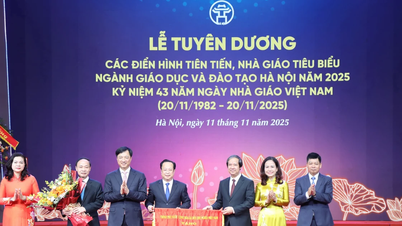


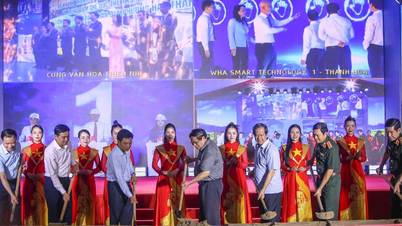







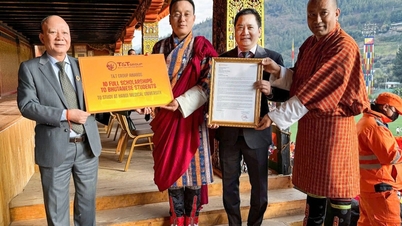

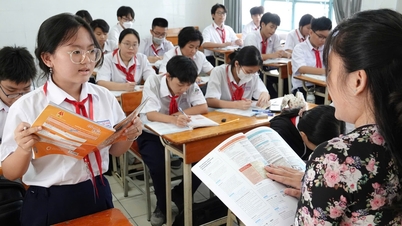




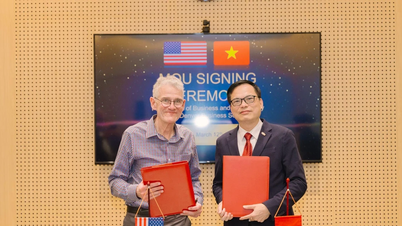
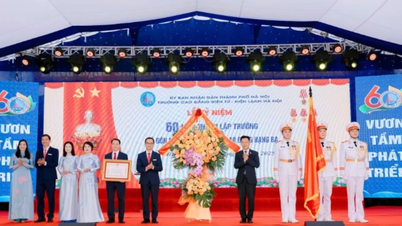
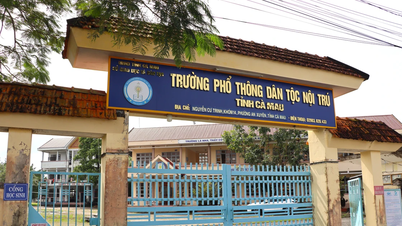
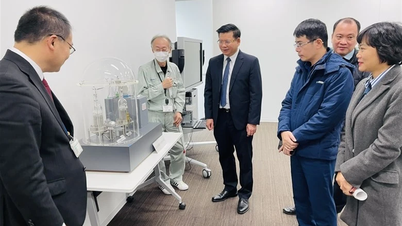
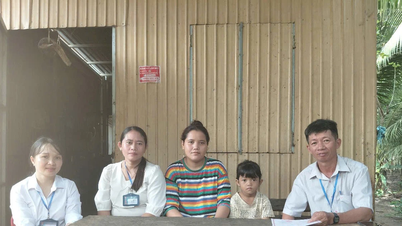

















































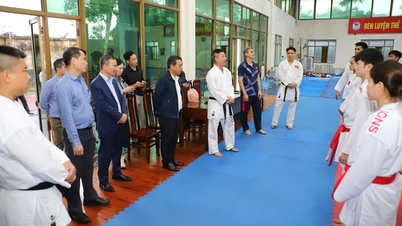






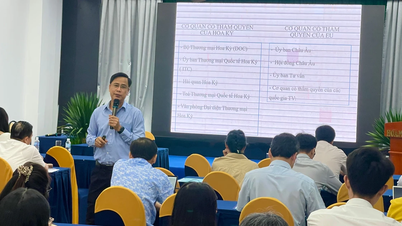
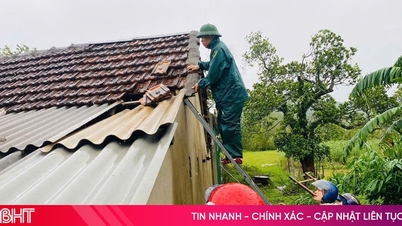




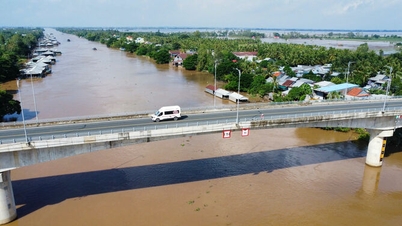







![Dong Nai OCOP transition: [Article 3] Linking tourism with OCOP product consumption](https://vphoto.vietnam.vn/thumb/402x226/vietnam/resource/IMAGE/2025/11/10/1762739199309_1324-2740-7_n-162543_981.jpeg)





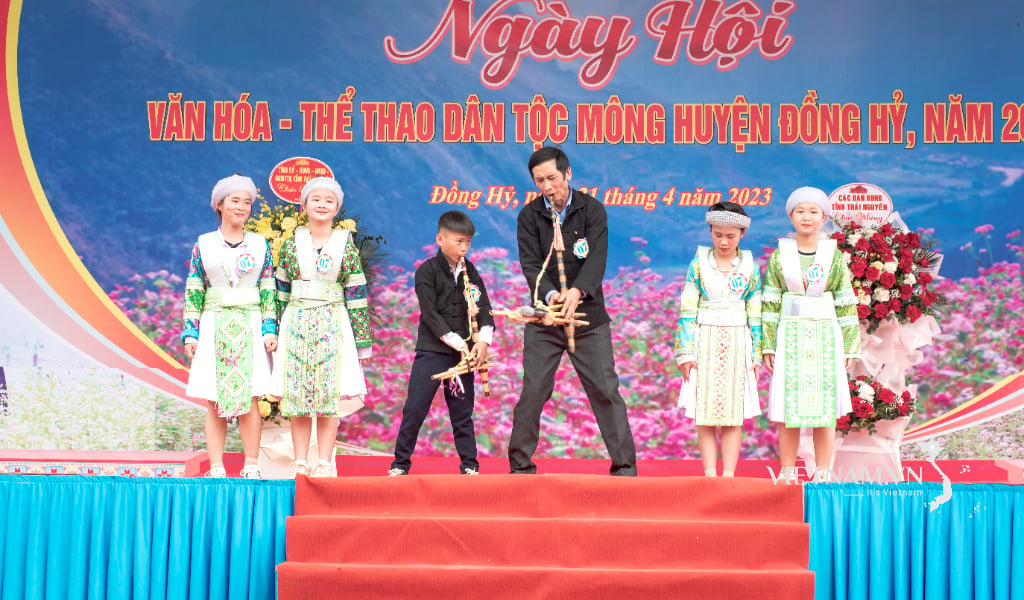

Comment (0)